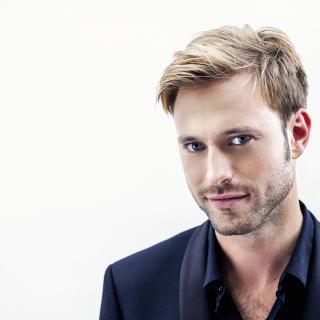“... I am convinced that Shostakovich's fourth symphony by Jukka-Pekka Saraste and HPO was the best concert performance I have ever heard. And I have heard many of them.” (Helsingin Sanomat, 16.3.2019). The previous performance of Shostakovich by Jukka-Pekka Saraste and the Helsinki Philharmonic Orchestra shocked both the critic of the leading Finnish daily newspaper and the concert audience. The next seismic Shostakovich interpretation is at the door as Saraste and the orchestra tackle the composer’s eighth symphony.
Jukka-Pekka Saraste
An artist of exceptional versatility and breadth, and renowned for his objective approach, Jukka-Pekka Saraste has established himself as one of the outstanding conductors of today, demonstrating remarkable musical depth and integrity.
He has served as Chief Conductor of the WDR Symphony Orchestra Cologne from 2010 until 2019. Previous positions include Music Director and Chief Conductor of the Oslo Philharmonic Orchestra, as well as Principal Conductor of both the Finnish Radio Symphony Orchestra and Toronto Symphony Orchestra. Guest engagements have led him to the major orchestras worldwide. Most recently, he created the LEAD! Foundation, which offers a leadership/mentorship programme for young conductors and soloists.
His extensive discography, including the complete symphonies of Sibelius, Nielsen and Beethoven has received much critical acclaim. He has been awarded the Pro Finlandia Prize, the Sibelius Medal, and the Finnish State Prize for Music.
Jukka-Pekka Saraste shares a long history with the Helsinki Philharmonic Orchestra – he made his debut with the orchestra in 1983 – and will in future be engaging in even closer partnership. In 2023, the HPO will be led by an artistic team comprising Chief Conductor and Artistic Director Jukka-Pekka Saraste, Principal Guest Conductor and Artistic Co-director Pekka Kuusisto, and Composer-in-Residence Anna Clyne.
www.jukkapekkasaraste.com
Facebook: Jukka-Pekka Saraste
Instagram: jpsaraste
Twitter: @jpsaraste
Benjamin Appl
German-British baritone Benjamin Appl (b. 1982) is one of the most highly-acclaimed singers to have emerged in the past ten years, celebrated on opera stage, concert platform and disc alike, and especially in Lieder recital. He has, say the critics, a voice that ‘belongs to the last of the old great masters of song’. This is not necessarily surprising, for he was one of the last private pupils of the legendary Lied singer Dietrich Fischer-Dieskau. His career has been on an upward curve ever since he was named Gramophone Award Young Artist of the Year in 2016. Before this, he had been a member of the BBC New Generation Artist scheme from 2014 to 2016, and a Wigmore Hall Emerging Artist and ECHO Rising Star for the 2015/16 season. These honours brought invitations to appear at major venues throughout Europe, including the Barbican Centre in London, the Amsterdam Concertgebouw, the Wiener Konzerthaus and the Paris Philharmonie.
Appl’s extensive discography takes in works by Schumann, Mendelssohn, Bach, Berio and others, and his most recent release is Schubert’s Winterreise with pianist James Baillieu.
Gustav Mahler: Des Knaben Wunderhorn
As a young man, Gustav Mahler (1860–1911) was deeply inspired by Des Knaben Wunderhorn (The Boy’s Magic Horn), a best-selling collection of old German poems and songs made and edited by Achim von Arnim and Clemens Brentano. He set many of these to music, and three found their way into his symphonies. Twelve were published in 1899 under the title Humoresques, with versions for orchestral or piano accompaniment. They would, he said, reflect his belief that music should encompass the whole world – a devout chorale just as much as a naïve country dance, sophisticated counterpoint or vulgar raving. The chosen songs thus represent many aspects of human life: affairs of the heart (Labour Lost) and longing for another’s embrace (Where the Fair Trumpets Sound), or war (Reveille) and tragedy (Earthly Life), while some tell a funny story (St. Anthony of Padua's Sermon to the Fish). Des Knaben Wunderhorn is like a colourful sketchbook with pictures of pain and evil but also goodness and beauty.
Dmitri Shostakovich: Symphony No. 8 in C Minor
The seventh, ‘Leningrad’ symphony by Dmitri Shostakovich (1906–1975) caused quite a sensation in 1942. Leningrad was under siege and many felt the music mirrored the barbaric Nazis and the Soviet fighting spirit. Expectations of the eighth symphony, which Shostakovich described as being for the most part optimistic and life-affirming, therefore ran high. But audiences at the premiere in Moscow in November 1943 soon realised that Shostakovich had been joking; Stalin did not expect artists to comment on what they saw, especially if their comments were unfavourable. So instead of being optimistic, the symphony was actually utterly pessimistic and left its listeners bewildered. The regime dubbed it the Stalingrad Symphony and claimed it paid tribute to the victims of the Battle of Stalingrad in 1942–1943. Its performance, like the works of certain other Soviet composers, was prohibited in 1948.
The structure of the symphony is unusual: it is in five movements, three of which are performed without a break. Some may in places detect the sound of sirens and hints of hasty evacuation, and the closing bars are anything but victorious.

